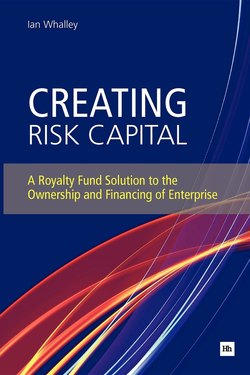Читать книгу Creating Risk Capital - Ian Whalley - Страница 40
На сайте Литреса книга снята с продажи.
Small-scale enterprise
ОглавлениеThe proprietorship and family form of ownership, prevalent in small-scale enterprises, profoundly influences the way they are run and is widely seen as beneficial. The proprietor can bring to bear the anxious vigilance of a true owner-manager, sensitive to the needs of his workforce, customers and suppliers, and of the community he serves, and seeking to ensure that his creation endures to the benefit of future generations.
Ownership held by suitable proprietors, with a keen sense of the responsibilities which it involves, is often perceived more favourably in terms of governance than ownership by investors, some of whom are seen as ‘punters’ with little appetite for such responsibilities. [12] Proprietorship and family ownership are, moreover, widely seen as one of the strengths of continental European economies in countries like Italy, France and especially Germany, where they have played a key role in the growth of the well-known Mittelstand tier of successful and enduring enterprises, a major contributor to the ‘economic miracle’ in Germany after World War II.
This view has not always prevailed, however, as in the long-running debate on the relative decline of Britain in the latter half of the nineteenth century, compared with the USA and Germany. In Germany, while many family firms declined, large-scale enterprise prospered under industrialists like Siemens, Krupp and Rathenau. In Britain in the same period and beyond, there was less growth of large-scale industry, while small-scale family firms predominated but fell behind.
As an enterprise grows and requires more resources than it can generate itself, a natural progression is for the proprietor to enter into partnership with others, or to form a company with other shareholders. At this point he crosses the Rubicon, because ownership and control will henceforth be shared, and as the enterprise grows larger, it may move away from its proprietorial, family culture towards one which is more corporate and managerial. While many large firms remain under family control, the more ownership is shared, the more that crucial sense of proprietor involvement and responsibility may diminish, leading ultimately to the passive role often played by shareholders of public companies.
